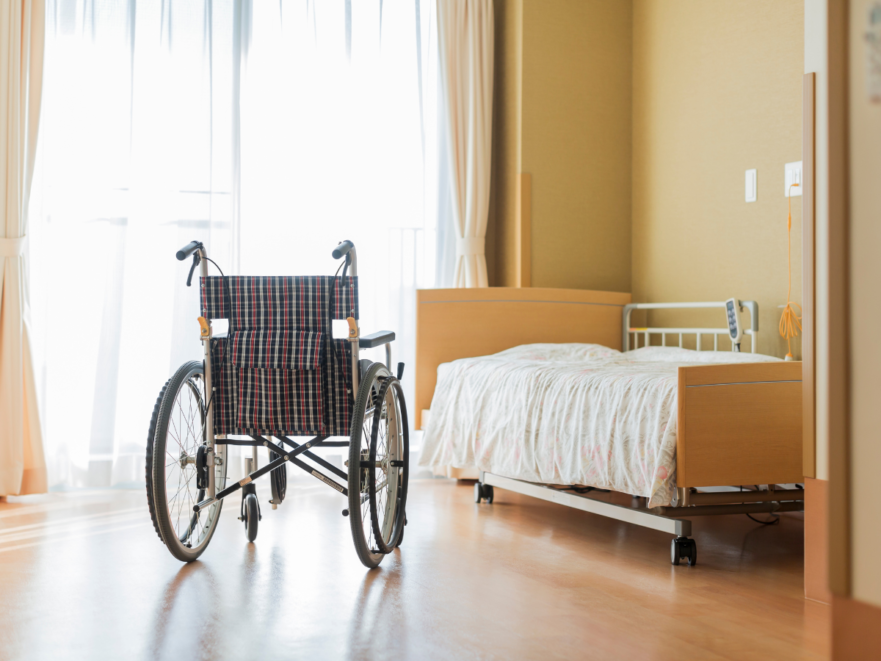Sometimes, as people get older and have more medical needs, nursing home placement seems like the kindest and most responsible thing to do. Loved ones expect that a nursing home will treat their family member with dignity, compassion and respect.
Unfortunately, they do not always meet this standard. Residents are vulnerable to ill-treatment and exploitation, and some facilities and individuals take advantage of this vulnerability. Nursing home residents sometimes face neglect, theft and outright physical or emotional abuse.
If one of your family members suffered abuse in a nursing home, you can take steps to hold the facility accountable with the aid of Attorney George W. Ganim, Jr., a Bridgeport nursing home abuse lawyer. A skilled personal injury attorney could discuss possible options with you and determine how best to move forward.
The Law Protects Nursing Home Patients
Connecticut General Statutes §17b-450 describes what constitutes elder abuse. The law prohibits the caretaker of any person over age 60 from:
- Depriving the resident of services they need to maintain their health
- Physically abusing the resident
- Inflicting emotional anguish on the resident
- Abandoning any resident they have an obligation to care for
- Exploiting a resident for financial gain
If the elderly person is in the care of a nursing home, anyone who suspects elder abuse is occurring should make a report to the Connecticut Department of Social Services. If they have been a victim of theft, physical abuse, or sexual abuse, the Department should file a report to the police. A local nursing home abuse attorney can help an elderly resident or concerned family member determine which agencies to inform about suspected abuse.
In cases of abuse, the priority must be to make sure the elderly person is safe. The next step should be reporting the incident so that it does not happen to other residents. The abused person and their loved ones could consider bringing a lawsuit to hold the nursing home accountable.
What Injuries Are Common with Physical Nursing Home Abuse?
Many of the signs of physical abuse in a nursing home are visibly noticeable. From bruising to lacerations, these injuries can be similar to any other type of physical assault. Common signs of physical abuse include:
- Broken bones
- Cuts and bruises
- Scrapes
- Welts
- Burn marks
Other types of physical abuse could be harder to detect. For example, there might not be clear evidence that a loved one was subjected to unnecessary physical or chemical restraints during their time in a nursing home.
What Are the Signs of Nursing Home Abuse?
Because of the varying types of nursing home abuse, there could be countless warning signs that abuse has occurred. Understanding and identifying these signs could help prevent future abuse and give a resident the opportunity to pursue a lawsuit for their injuries and losses. Some common signs include:
- Fear of caretakers
- Depression
- Physical injuries
- Unexplained weight loss
- Dehydration
- Unexplained financial transactions
- Poor hygiene
Proving a Nursing Home Failed its Residents
A successful civil lawsuit requires the resident or family member to show that the nursing home was negligent by failing in the duty of care it had to the resident.
There are many ways to show that a nursing home breached their duty. Proof that the facility violated the law would be clear evidence of a breach of duty. If the Department of Social Services made findings against the facility, that also would constitute evidence of a breach. If there are witnesses to the elderly person’s mistreatment, or documents that show neglect or exploitation, these could also be brought as evidence.
Sometimes the resident’s condition makes neglect obvious. A patient who develops bedsores is likely not being cared for properly. An agitated or challenging patient may be overmedicated for the convenience of the staff and this could constitute abuse if it deprives the resident of the ability to fully participate in life. If a patient escapes the facility and gets outside unattended, that is a clear failure of security on the facility’s part. Attentive loved ones who keep a watchful eye on the resident’s condition can provide helpful information to an elder abuse lawyer in the area who is trying to prove a facility is negligent.
How Long Does Litigation Take?
For many elderly residents, the prospect of spending a lot of time pursuing litigation might be difficult. Thankfully, the assistance of Attorney Ganim can help avoid unnecessary delays in this process. Aggressively pushing forward with these cases can keep delays to a minimum.
An attorney can also take on the stressful aspects of an abuse claim, such as attending the pre-trial hearings on the resident’s behalf. This allows the victim to recuperate from the harm they suffered and not have to worry about complicated legal aspects.
Justice For You Begins With Us
Putting a loved one in a nursing home is a difficult decision, and learning that they were abused in the facility can lead to overwhelming feelings of anger and guilt. It can be difficult to think straight and make logical decisions when dealing with such an emotional situation.
It would be wise to put the case in the hands of professional Bridgeport nursing home abuse lawyer who understands the legal aspects of nursing facility cases and the emotional toll that they take on patients and families. Contact Attorney George W. Ganim, Jr. to discuss your legal options.
